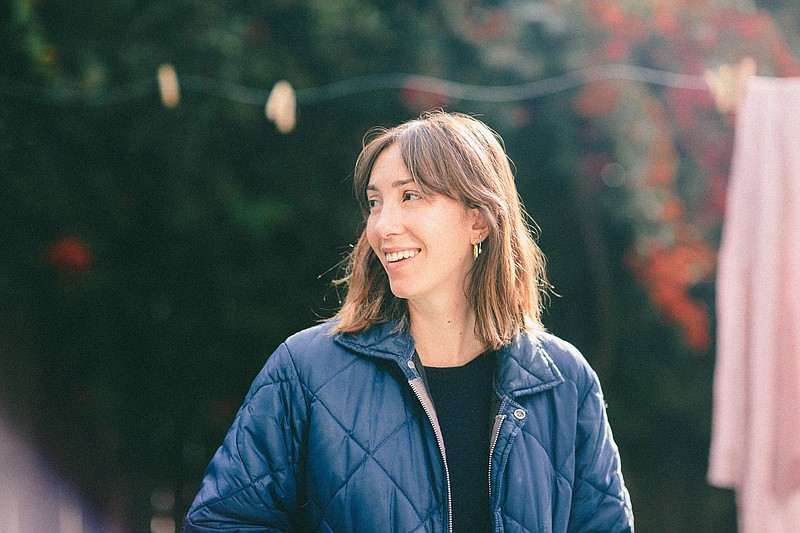It's sometimes easy to dismiss people who've entered into the spotlight thanks to YouTube and TikTok. For example, The New York Times recently suffered an embarrassment when its story about social media star Madison Kohout proved false. She hadn't really moved into a senior living complex in Piggott.
Apparently, she read the sign for the community but not for the facility where she actually lives.
While co-writer-director Gia Coppola's recently released "Mainstream" explores how people can get harmed when millions can potentially feed off an influencer's fame. It stars Andrew Garfield ("Hacksaw Ridge") as an enigmatic fellow named Link whose past is murky but whose presence online guarantees clicks and likes. Sadly, other people pay for his rise to fame.
If "Mainstream" was simply a cautionary tale, it wouldn't have featured real-life YouTube star Jake Paul and "Jackass" veteran Johnny Knoxville, who has shown talent as an actor but who is best known for abusing his body in amusing ways.
Coppola says that while Link and his fans represent the potential dangers of living online, many of the influencers like Paul and Knoxville have become popular for a reason. Paul, who has shown some aptitude for boxing, plays himself.
"It was kind of fun to use (Knoxville) where so much of the content today is kind of an homage to that prankster behavior. It was really fun talking to Johnny about the pranks that I was trying to attempt or pranks that I wanted to do. It's really an art to him," she says over Zoom.
"There is a fascination with this new world and the new celebrity where the content can be as simple as unboxing a box and playing videogames, and you can make millions. It was really important to me that we didn't just kind of harpoon these characters. There are human beings behind it and what their content means to them. Getting to know them was important to them. It was interesting to learn that they have a deeper connection with their audience, and that's meaningful to them."
Link isn't so accommodating to his fans. On his web-based game show, he offers audience members $400 to engage in activity that could lead to ridicule or worse from legions of viewers.
Coppola explains, "The concept of the game show is what are the lengths that we go to and why is there so much importance to this sort of world and devices. The show eventually kind of gets mean spirited."
It would have been easy to trash technology that makes Link's world possible, but Coppola and I would not have been talking to each other without it. The movie itself wouldn't exist, either. Processing 35mm film might have taken too long and would have been prohibitive for in-demand thespians like Garfield or even Jason Schwartzman (a relative of Coppola's who plays Link's sleazy manager).
"We only shot this movie in 19 days. That's partly why the cast was available," she says.
"Mainstream" also stars Maya Hawke ("The Good Lord Bird," "Once Upon a Time in ... Hollywood") as Frankie, an aspiring filmmaker who discovers and later documents Link's rise to prominence.
When she's making her own musings on the world without Link's influence, Coppola interrupts the images with title cards that would seem at home in a Buster Keaton or a Charlie Chaplin movie.
As "Mainstream" progresses, Coppola floods the screen with emojis and other clutter that reflect the norms of influencer broadcasts. Frankie gradually longs for her former obscurity.
"It's also the transition of movies into this kind of new technology of the internet and storytelling in a new form," she says. "That's probably where she's going to end up. If you can have one person that connects to what you're making, that's everything."
Coppola herself didn't grow up in the sort of obscurity Frankie experienced in her youth. Her grandfather is "The Godfather" and "Apocalypse Now" director Francis Ford Coppola, and her aunt is Sofia Coppola ("Lost in Translation").
While filmmaking may run in her blood, a familiar last name doesn't always help in getting work. Coppola has also shot video projects for singer Carly Rae Jepsen and has helmed an episode of "Love Advent."
"I work very hard, and there's advantages and disadvantages to having a name like this, and it's important to me to know that I can stand on my own two feet," she says.
One thing that sets her own apart from her Oscar-winning kin is that her movies like "Palo Alto" and "Mainstream" feature characters who aren't rich or famous. Her aunt's films like "Marie Antoinette" and "On the Rocks" feature characters who can spend large sums of cash without blinking.
In "Mainstream," Frankie tends a bar to make a living and has to part with her car to simply afford living.
"Just drawing from personal experiences," she explains. "I finished college, and I needed to pay my rent, so I decided I wanted to do bartending, even though I had studied photography at college, and I felt there was something creative there. It's your mixology with your hands. It's an interesting and new environment."
Both her features are set in the Golden State, but "Palo Alto" features teenagers named Fred (Nat Wolf, who also appears in "Mainstream") and Teddy (Jack Kilmer) who struggle with their self-destructive tendencies.
You don't have to live in California to meet youngsters like them.
"With 'Palo Alto,' I knew that I wanted to tell a story even though it was a specific place, these were universal scenarios and people and feelings. I also kind of wanted to do that with this film ("Mainstream"). Even though we're dealing with this kind of heightened kind of reality and in this unusual platform, the dynamics are familiar and simple.
